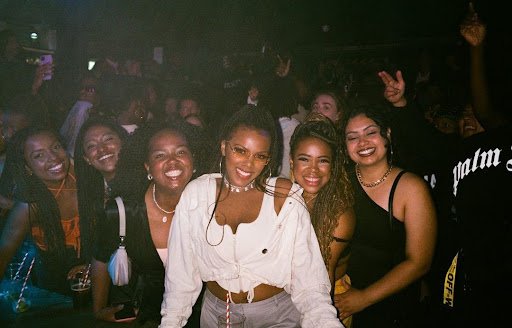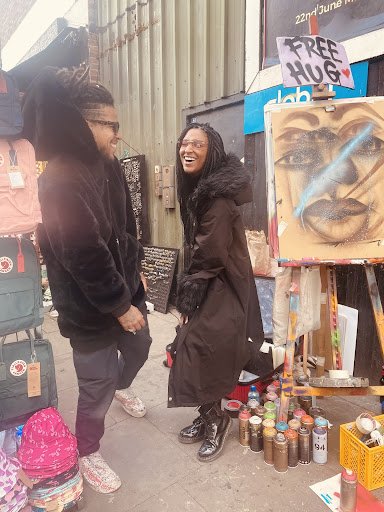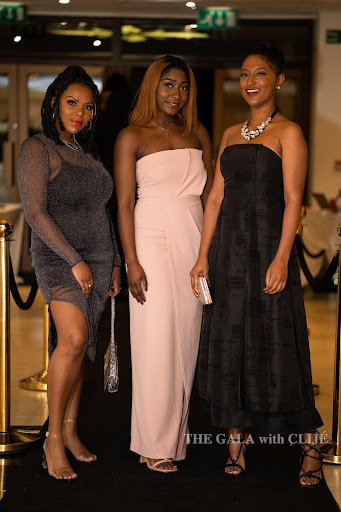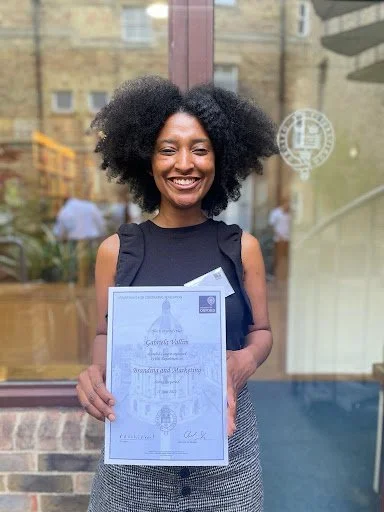What would Brazil look like without the media whitewash?
Personal archive
By Gabriela Vallim
Carnival, samba, football, funk, stunning beaches and happy people are words commonly used to describe Brazil. It’s the world’s fifth-largest country with 200 million people, and the second most populated black country, after Nigeria. The land of Ronaldinho, Pele, Neymar, Ludmilla, Anitta, the statue of Christ the Redeemer and the Sugar Loaf Mountain.
“I want to share with you more about this fascinating place through my lens, as a journalist from the Favela (ghetto) living in London”.
Photographer @myloshotitt- clubbing with my Brazilian friends
The internet has been an important tool for democratising access to knowledge, disseminating information and promoting freedom of expression and defence of democracy in Brazil, the fourth-largest Internet market globally with 126 million users.
(Source: OWID based on World Bank & UN World Population Prospects 2017).
The media industry in the country is still dominated by family-owned companies. The largest media company in South America, Organizações Globo, was founded in 1925 by journalist Roberto Marinho in Rio de Janeiro. The conglomerate includes magazines, newspapers and the biggest TV network, Globo Network, with 1,222 owned and affiliate television stations throughout Brazil. Television is still by far the most important media in Brazil, reaching 98 per cent of the population.
Being a Brazilian journalist working on human rights, culture, politics and corporate communications gave me an overview of how the non-black Brazilian community portrays itself as superior to the other groups. And how they, sometimes even unconsciously, believe in this false superiority as an absolute truth.
From an early age, I understood how this narrative is embedded in every representation of culture, beauty, good and bad, the selective compassion, the silence about police brutality, the lack of black politicians, abuse of power and corruption, everything corroborated by the media.
Photographer @renaitreborn
“Without representation, equal opportunities or a voice, black people born in Brazil, or even immigrants, are statistically in a subaltern position compared with other groups”.
Rudson Silva- Visual artist from Rio de Janeiro based in Camden Town @pico_favelado
Not for lack of effort, but due to a social structure built to keep things that way. It contradicts the image of the country as a place for everyone, replicated on the television, news and even in the image we export to the world of a diverse nation. Things work in a different way if the individual is black.
The country imported 4.9 million enslaved people from Africa during the period from 1501 to 1866.
“An estimated 91 million Brazilians are of African ancestry”.
According to the 2010 census, around 56% of the Brazilian population identify as preto (black) or pardo (mixed ethnicity). At the same time, Brazil has a similar case to the George Floyd episode every 20 minutes. Racism a la Brazilian started from day one, but didn't finish with the abolition of slavery; it has been adapted and practised through social constructions that exclude black people from sustainable development policies and what should be assured to all citizens- the right to life.
@clije_ @thecc.club Black Owned premium non- alcoholic mixer- The Gala- Clijé Annual Dinner
During my sabbatical year living in London, I had the privilege of being exposed to another way of living.
In my country, I used to experience racism multiple times a day, such as being followed by the security guard at the supermarket, hearing that my afro hair or braids aren't professional, or seeing people like me stagnating in their careers because they are too black to be given a chance - even when more qualified than other candidates.
“In London I am an individual, a person, my race doesn't come first in all my daily interactions”.
Personal archive- Museum Madame Tussauds London
London allowed me to meet people from every continent, many languages, and completely different beliefs from what I knew, living together and respecting each other. It fills me with hope that in the future I can say the same about my country, but before that there is much work to be done. I believe that the most effective way to change our reality is with international support: connecting with leaders and people willing to take small actions for big changes, people who believe in the power of education to transform lives and who are willing to invest financial, material or intellectual resources to join hands with other world citizens dedicated to making Brazil dream again.
Gabriela vallim
“I'm an Afro Brazilian journalist, Portuguese teacher and cultural producer. Born and raised in São Paulo, Brazil; currently based in London. In my country I served as a human rights consultant for the federal government, connecting a strong network of activists, decision-makers, artists and digital influencers to amplify and promote the Sustainable Development Goals (SDGs). In the private sector I worked in corporate communications for big companies such as British American Tobacco and Grupo Boticario, one of the biggest cosmetic companies over there. I was invited to represent the country at the United Nations, speaking about how the Young People’s Participation in Peacebuilding is establishing a creative economy that contributes to diversity in Brazil”.







